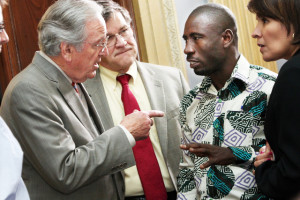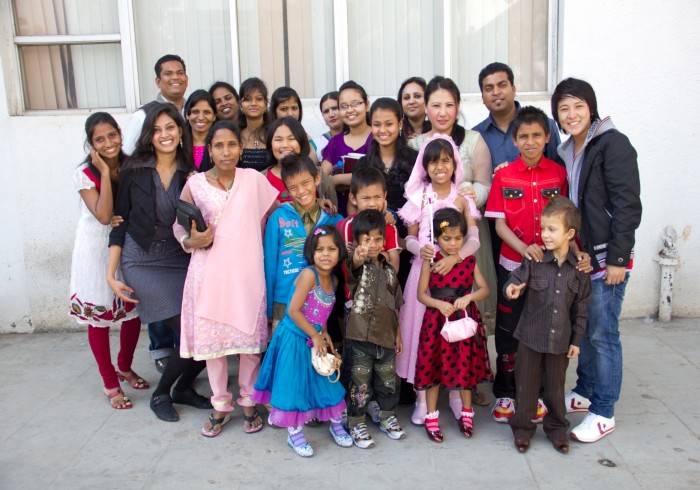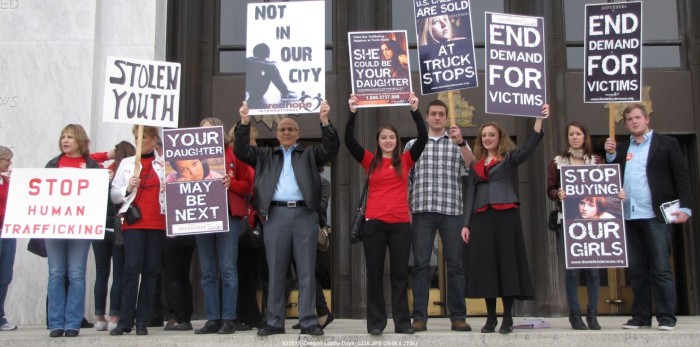
Education is a very important part of restoration for survivors of human trafficking. However, it can be very challenging at first, especially after a nine year break from school. In my last blog, I spoke about how nervous I was to return to school but that nervousness was quickly drowned by feelings of discouragement once I arrived in Chicago.
Prison would have been a better option. This thought lingered in my mind for several weeks after I moved to Chicago to complete my education. Here I was, in a new city, on a scholarship, at a University with a social justice mission but would rather be in prison. For many people returning to school meant they had to think about how they would pay for tuition, fees and text books but these were of no concern to me since these expenses were already paid. I had to worry about a place to live.

Prior to moving to Chicago I thought I would arrive a week before school started, find a place to live, move in and get settled before the start of the semester. A very kind friend offered to open their home to me while I looked for a place of my own. I was under the assumption that crashing on their couch wouldn’t be too bad, it would only be for a short time until I found a place and moved out.
It took two months to find a place to live. Due to my felony conviction, I was denied because I couldn’t pass the background check. I broke down many times just thinking about how I got into this predicament. How could the trafficker use his tactics of manipulation and fear to hold me in exploitation and now, though I’m free, I continue to suffer the consequences of my actions under his direction.
“Why me?” became my solemn cry. I wanted to quit school and move back to D.C. Instead of being in school, I wanted to be in a courtroom fighting on my own behalf. Through the coercion of my pimp, I committed criminal acts, driven by the fear of the brutal torture I received when I was not compliant. Yet, I was punished with a felony and given probation. Although I was free from the physical bars of a prison cell, I felt confined to the reality that my victimization didn’t matter and I will forever pay the price for what was done to me by a gorilla pimp.
Although thoughts of giving up crossed my mind, I didn’t have the guts to quit. I am NOT a quitter but a fighter, determined to succeed no matter how hard it may seem. It seemed I had taken my eyes off my prize—the very reason I was going to school to get my degree. I must fulfill my dream of becoming an attorney and ultimately fight for girls who may end up in my situation so they do not have to face these same struggles. I pressed my way through failing the first half of the semester. It was difficult to focus the attention I needed for school when I had yet to find a home.

I got a glimpse of the sun breaking through my gloomy skies as I remember the One in whom my faith lies. I turned to the only source I know, the One who is able to keep me from falling – Jesus Christ. By March 1, I moved into a brand new apartment, with brand new appliances. The landlord was aware of my background and approved me. With only two months left in the semester, I had work to do. I couldn’t afford to fail the first semester and the library became my best friend. Friday nights when all the students were getting ready to hit the town, I was in the library trying to catch up.
My mentor, Professor Donoghue, author and historian, was my biggest motivator. When I had the look of depression on my face he would always provide me with encouraging words. As part of my scholarship from Loyola, I am conducting research on the history of sex trafficking but Professor Donoghue encouraged me to apply for another fellowship. I applied, doubtful that I would be selected for the fellowship. The Director for the Center of Experiential Learning, Dr. Green, and the Undergraduate Research Program Manager, Dr. Warner, said they were impressed by my application and awarded me with the Social Justice Research Fellowship where I will be conducting research on the bottom girl phenomenon in sex trafficking and presenting my findings at the 2015 Week of Excellence at Loyola University.
A little faith is all it took to get me back on the path of determination. I completed the semester passing every class. Thanks to the other survivors who shared their struggles in returning to school and a host of supporters who continue to motivate and encourage me in my uphill battle.

 Life is one of the most precious things in the world and it takes tremendous courage to save one. Sparsh Founder, Timothy Hirwale, shares what motivated him to rescue and raise dozens of India’s children as his own and how his organization is making an impact.
Life is one of the most precious things in the world and it takes tremendous courage to save one. Sparsh Founder, Timothy Hirwale, shares what motivated him to rescue and raise dozens of India’s children as his own and how his organization is making an impact.







